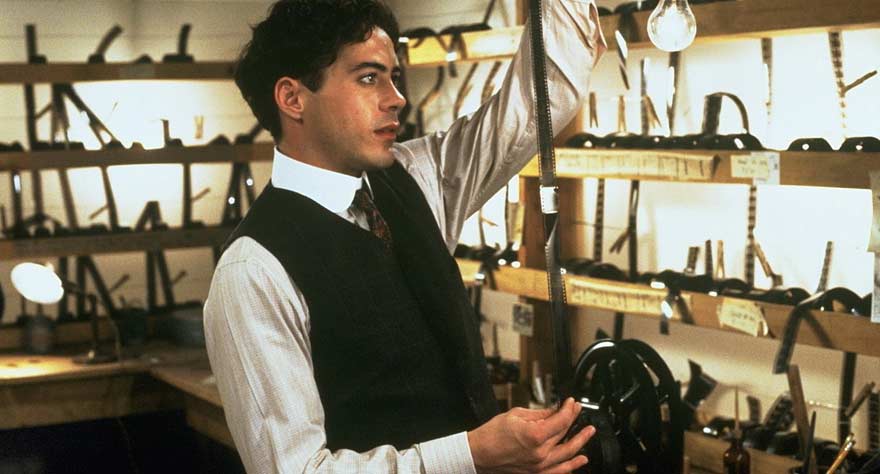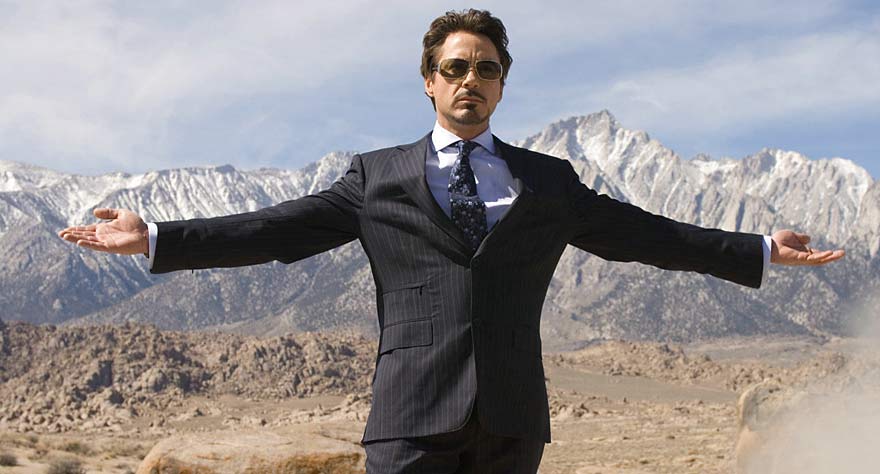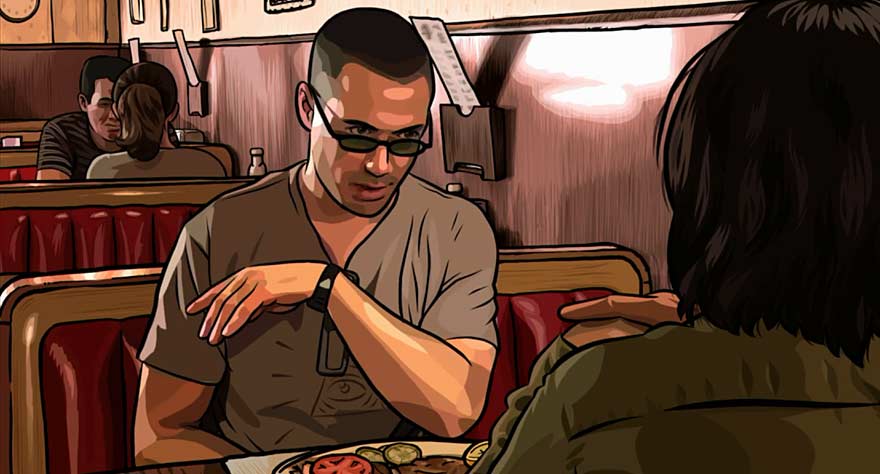The Creative Patricide of Robert Downey Jr: The Superhero Son of an Independent Prince

If Robert Downey Sr. were more famous and his progeny less well-known, the “Junior” in Robert Downey Jr. would take on a much greater significance. It would become less a mark that he comes from an interesting family and become more like the “Junior” in Frank Sinatra Junior: a curse delivered at birth to ensure that the son will neither usurp the father professionally nor challenge his esteemed place in the show-business firmament.
I would consider Robert Downey Sr. a great man and a great artist, but he was blessed and cursed to live his professional life in the margins; first, as one of the great innovators of early independent experimental film, and then as an increasingly irrelevant commercial filmmaker—reduced to churning out garbage like The Gong Show Movie for his buddy Chuck Barris.
Recently, Criterion released a box set of Downey Sr.’s early experimental films, as well as Putney Swope, the outrageous ad-world satire that represented Downey Sr.’s creative and commercial breakthrough and semi-famously inspired Louis C.K. to become a filmmaker. The films included in the set are so personal and intimate that they sometimes feel more like home movies than proper films.
In a sense, they are home movies: lively improvised slices of life prominently featuring the filmmaker’s family, particularly his actress wife Susan. These are fascinating sociological documents of how New York looked in the 1960s and how New Yorkers behaved enlivened by an anarchic comic spark that presages the tiny comic revolutions of National Lampoon and Saturday Night Live (where Robert Sr.’s brother James worked and continues to work for decades) and Woody Allen’s golden age.
This is the upside to the world that Robert Downey Jr. was born into: he was a beautiful, androgynous child whose family name might not have meant anything to outsiders, but marked him as countercultural royalty to the right people. He was a little prince raised by bohemian parents who left him a complicated legacy.

Robert Downey Jr. as Charles Spencer Chaplin in Chaplin
Downey Sr. introduced his little prince to both acting and marijuana at a very early age. While the notion of pot as a gateway drug seems increasingly ridiculous, it does not seem coincidental that a child introduced to drugs by his father would go on to become the world’s most famous junkie.
For years, Downey Jr. had the strange misfortune to be our most famous drug addict; a man riddled by demons so intense and so severe that he was as famous for being a drug addict as he was for being one of the most talented and charismatic actors of his generation. So when Robert Downey Jr. famously and, to be brutally honest, factually, told Entertainment Weekly that he wouldn’t make a 500,000 dollar indie movie after a blockbuster, there was a whole lot more at play than the aging Downey Jr.’s concern for the comforts and ease of studio movies.
I have no doubt that Downey Jr. loves his father. He was one of the guests at a tribute to him in LA not too long ago (along with Downey Sr. super-fan Paul Thomas Anderson), but his father left him a violently contradictory legacy. Downey Jr. grew up on independent film sets, or what would be sets if his father didn’t prefer just shooting on the streets without a permit. So for Downey Jr., independent films are more than just an option post-blockbuster. They’re a massive part of a past that contains incredible triumphs but also incredible pain rooted in the drugs that were a bond between a brilliant, troubled son and his brilliant, troubled father.
Press tours have a way of bringing out the worst in actors by subjecting them to the same asinine questions over and over again and making them feel like mercenaries out shilling their wares to whatever outlet is interested. So when Downey Jr. told Entertainment Weekly Radio that he’s reluctant to plunge into the world of independent film again because, in his estimation,
“they’re exhausting and sometimes they suck and then you just go, ‘What was I thinking?” part of me suspects he was channeling the sneering bluntness of Tony Stark.

Robert Downey Jr. as Tony Stark in Iron Man
That’s what makes Downey Jr’s casting as Tony Stark/Iron Man so inspired. They’re both paradoxically men of almost superhuman resilience and strength who are paradoxically defined by their intense vulnerability. And, if that fifty million dollar paycheck and robot suit can make a man who has been through many a hell of his own devising, feel stronger and less vulnerable, than it’s understandable why he might prefer playing superheroes to the kinds of misfits bumming around the fringes you tend to find at Sundance.
And, to give Downey Jr. credit, a lot of independent films are terrible. The idea that a film’s budget and tone and production paradigm makes it inherently worthwhile and the product of artists is insulting to the great independent films that do overcome tremendous obstacles to become a lasting piece of art. If we pretend that every independent film is a scruffy triumph like Winter’s Bone then we greatly undervalue that particular film’s enormous value.
I’d like to imagine that if another script like A Scanner Darkly were to come to Downey Jr. he would not toss it in the circular file because the set lacked an impressive craft services budget. I do not blame Downey Jr. for not wanting to be James Toback’s alter-ego in a series of self-indulgent indies that seem to exist solely to satisfy Toback’s massive ego.

Robert Downey Jr. as James Barris in A Scanner Darkly
As to Birdman director Alejandro González Iñárritu’s argument that superhero films represent “cultural genocide,” well, I would argue that Iron Man 3 as an achievement towers over Birdman, Academy Award or not. Pop culture isn’t innately trash any more than independent films are innately high art.
It’s safe to say that Downey Jr. has spent more time on independent movie sets than almost any writer who has interviewed him, and knows of their joys and agonies better than just about anyone. These films are not just a world he knows well, they were the spaces that created and distorted him, and where he has honed his idiosyncratic gifts. And, if this man who has survived so much, wants to leave these worlds, at least temporarily, in his past, I, for one, cannot blame him.
